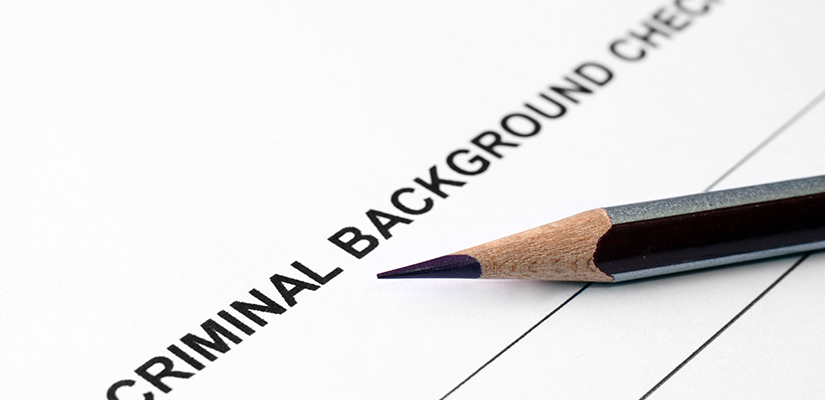 It has become routine. You apply for a job, and your potential boss asks you for permission to conduct a criminal background check. For those who have no criminal history, such a check is not an issue, but for the millions of people who have been convicted of a crime, a background check is a significant barrier to getting a job.
It has become routine. You apply for a job, and your potential boss asks you for permission to conduct a criminal background check. For those who have no criminal history, such a check is not an issue, but for the millions of people who have been convicted of a crime, a background check is a significant barrier to getting a job.
In the last few years, the federal government has begun putting pressure on state and local governments to adopt stricter policies that prevent using criminal background checks as a way to discriminate against current and prospective employees.
In 2013, the U.S. Equal Employment Opportunity Commission (EEOC) sued BMW.
A federal court found the company used criminal background checks as a pretext to deny employment to a disproportionate number of otherwise qualified African American candidates for jobs at its manufacturing plant in Greer, South Carolina.1
A similar result occurred when the EEOC sued Pepsi for discrimination based on criminal checks that adversely affected the employment of over 300 African Americans. In 2012, the soda manufacturer was ordered to pay $3.13 million to those former employees and applicants.2
The Problem of Race and Criminal Background Checks
Racial disparities have long been an issue in our criminal justice system. For instance, African Americans and Hispanics represent 58 percent of all incarcerated people in the United States, but only comprise 25 percent of the U.S. population. One out of every six black men in the U.S. has spent time in jail or prison.
The overwhelming number of men and women that are behind bars in this country are there because of drug offenses. Though statistics indicate that there are five times as many white drug users as there are black drug users, nearly 60 percent of people in jail or prison for a drug offense are black.3
The reasons for the inequities in these conviction rates are numerous, but not the subject of this article. Suffice it to say, the numbers show how a criminal background check is more likely to screen out an otherwise qualified African American or Hispanic candidate than an otherwise qualified white candidate. There is valid concern that criminal background checks could be used by an employer to further an ulterior motive to keep minority employees out of certain businesses.
What Eliminating Criminal Background Checks Could Mean in California
 Cities in Ohio, Texas, Virginia, Delaware and Pennsylvania have taken steps to eliminate criminal background checks. California’s solution is one of greater openness in the process. California Civil Code Section 1786 allows a job applicant the right to see the results of a background check for employment. However, the state recognizes that an employer also has a right to be concerned about hiring someone with a criminal past. For that reason, criminal background checks still exist.
Cities in Ohio, Texas, Virginia, Delaware and Pennsylvania have taken steps to eliminate criminal background checks. California’s solution is one of greater openness in the process. California Civil Code Section 1786 allows a job applicant the right to see the results of a background check for employment. However, the state recognizes that an employer also has a right to be concerned about hiring someone with a criminal past. For that reason, criminal background checks still exist.
If the state were to ban criminal background checks, it would be welcome news to those job applicants who have minor crimes in their past, such as possession of a controlled substance, or a petty theft conviction when the applicant was a young adult. If criminal background checks were outlawed in California, there would be less of a chance that an otherwise qualified candidate would lose out on a job. A ban would also eliminate one of the tools that an employer can use to promote a diversity-free workplace. However, employers will argue that eliminating background checks leaves them wide open to employees who will embezzle from the company, commit fraud on behalf of the company, or use drugs on the job, creating safety issues for other employees and customers.
Share Your Thoughts with Us
Both sides of the debate have a legitimate concern, which makes a solution to the problems associated with criminal background checks difficult to find. We would like to hear what you think? Should California do away with criminal background checks? Should the state leave the decision on background checks up to employers? Or, should the state pursue a different path to address the concerns of both sides? Please let us know what you think in the comments section below.
1. [David Dykes, “BMW to pay $1.6M, offer jobs to settle federal bias lawsuit,” The Greenville S.C. News, Sept. 9, 2015, as reprinted by USA Today, available at: http://www.usatoday.com/story/money/business/2015/09/08/bmw-pay-16m-offer-jobs-settle-federal-bias-lawsuit/71914836/.]↩
2. [“Pepsi to Pay $3.13 Million and Made Major Policy Changes to Resolve EEOC Finding of Nationwide Hiring Discrimination Against African Americans,” US EEOC Press Release, January 11, 2012, available at http://www.eeoc.gov/eeoc/newsroom/release/1-11-12a.cfm.]↩
3. [NAACP, “Criminal Justice Fact Sheet,” available at http://www.naacp.org/pages/criminal-justice-fact-sheet.]↩



